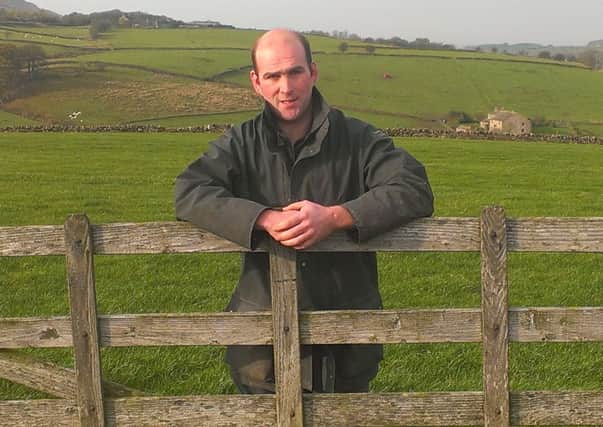Tough talks over the future of tenancies


George Eustice, the newly appointed Defra Parliamentary Under Secretary of State, will be among the speakers at the National Farmers’ Union’s Tenant Farmers’ Conference 2013 next week.
Tenant farming accounts for more than a third of the agricultural area of England and Wales and is considered the most accessible route into the industry for newcomers.
Advertisement
Hide AdAdvertisement
Hide AdThe conference, which is entitled ‘The Realities of Delivering a Prosperous Future for Tenants’, will look at national issues affecting the sector as well as investment opportunities for tenants looking to expand the scope of their operations.
Simon Kavanagh, who farms under a tenancy agreement at West Berwick Farm, a mixed farming operation in Draughton, near Skipton, succeeded in joining the industry by pursuing the tenancy route when he left university with a degree in Agriculture and Land Management.
He said tenant farming remains a viable route for new entrants and a profitable one if people are willing to work hard enough.
“The only way for me to get into farming was to get another farming job as well as renting land. I got hold of 50 acres of land in Eldwick and at the same time I was working on another farm. By saving, I bought 274 pure bred Lleyn gimmer lambs and that was the foundation flock for what I have built up now.”
Advertisement
Hide AdAdvertisement
Hide AdAs well as land at Eldwick, he rented grazing land on a pig farm near Lancaster, an arrangement he negotiated with a farmer he was working for at the time and he still sends sheep elswhere for wintering. It meant his early operations were split over a distance of 70 miles.
“It’s difficult but if you’re willing to work hard and look at different ways of doing things, and you’re able to negotiate both with landowners and employers, tenancy is a route in.”
A big issue identified by the Tenant Farmers Association, in its vision for the sector by 2020, is for more long-term, flexible arrangements between landlords and tenants. The introduction of the Agricultural Tenancies Act 1995 means new tenancies have no minimum term.
Mr Kavanagh said: “Farming is a long-term business but too many tenants work under short agreements for high rents.”
Advertisement
Hide AdAdvertisement
Hide AdJonathan Fairburn, tenant farming spokesman for the NFU’s North East branch, said rents were beginning to increase again after a relative period of depression, fuelled by greater confidence as a result of the recent good weather.
Landing a tenancy is a competitive process and Mr Fairburn said he would like to see tax breaks for landlords who let their land to a newcomer as it would help to secure the future of the industry.
“Unless you’ve literally won the lottery, farming is a very hard thing to get into now,” he said.
“The amount of capital, machinery and livestock to even set up a 200-acre farm is huge, so that’s why the only way for first timers to get in is through the tenant sector.”
Experts to give their views
Advertisement
Hide AdAdvertisement
Hide AdNFU president Peter Kendall and horticulture board chairman Guy Poskitt are among the speakers at the Pavilions of Harrogate on Thursday.
Farm business tenancies, rent arbitrations and finance options will be discussed by Hugh Fell of George F White, James O’Brien of Brown & Co and Alick Jones of Lloyds.
John Varley of Clinton and Devon Estates and John Macmillan of Cambridgeshire County Farm Estate will talk about landlords and tenants working together and the importance of county farms to the sector.